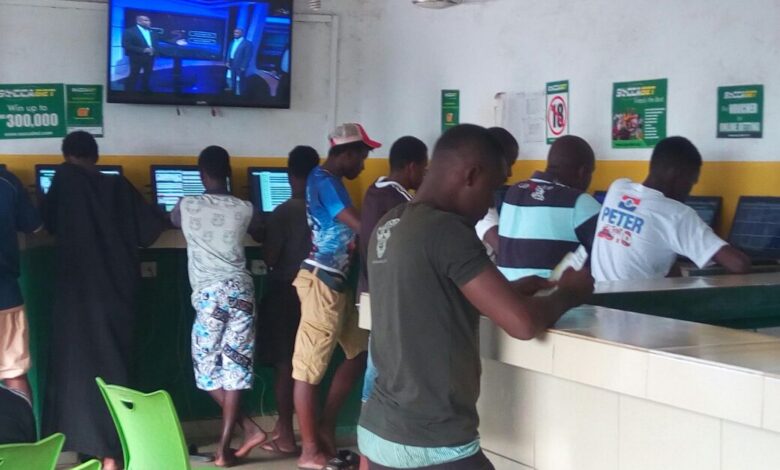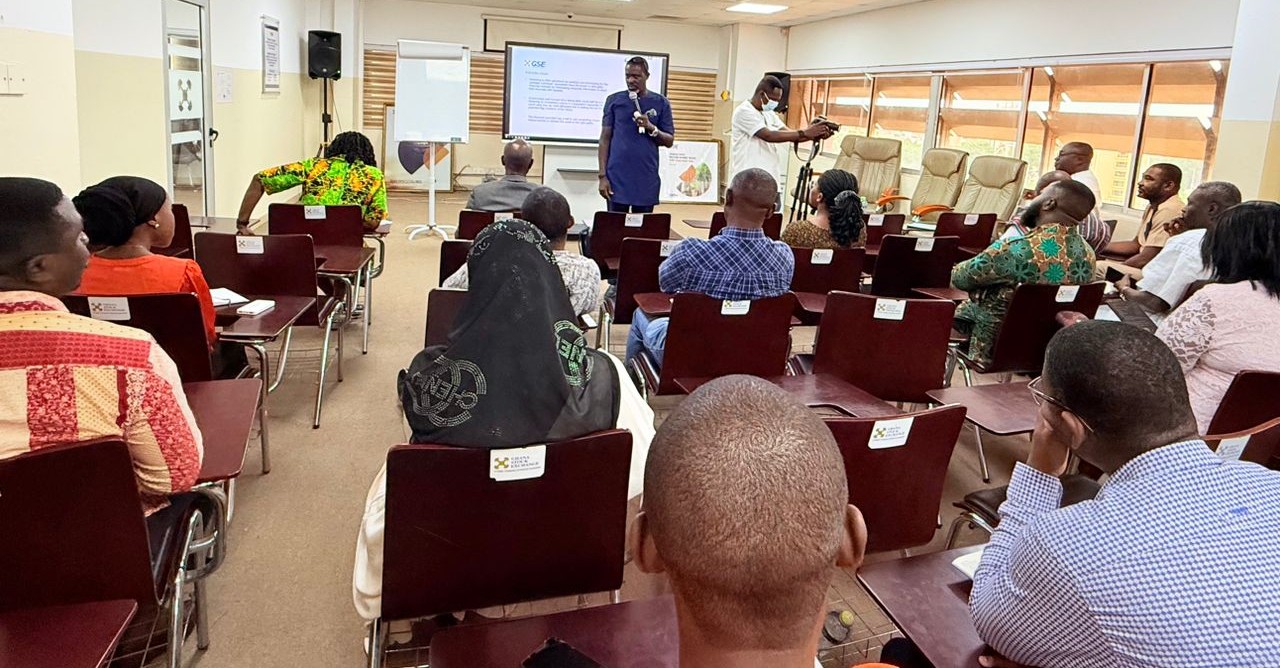Ghana’s Betting Addiction Spurs Call for Journalists to Lead Investment Culture

From the bustling streets of Accra to university campuses across the country, sports betting has become a powerful lure for young Ghanaians. Whether crowded around betting shops or glued to their mobile apps, thousands chase the promise of quick cash in a game where most end up losing.
The Social and Human Toll
The consequences go far beyond lost money. Betting addiction is tearing through families and communities, driving some young people into desperate acts. In recent years, a 19-year-old was caught embezzling more than GH₵1 million, another youth stole GH₵139,000 and was handed a 15-year jail term, and an accountant misused GH₵40,000 from his firm to gamble.
Underage Gamblers in the Shadows
Despite regulations, underage betting has become widespread. Research indicates that more than 40 percent of bettors are under 18, with children as young as 10 actively participating. Many of them fall behind in school, strain family relationships, and battle with emotional instability as they chase wins that rarely come.
A Worsening Public Health and Economic Challenge
The spread of gambling is draining household finances, worsening malnutrition, and fueling mental health issues like anxiety and depression. Economists now describe the crisis as both a public health concern and an economic emergency, especially among unemployed youth looking for fast returns.
Governments have tried to act, with the previous administration introducing a tax on betting winnings to discourage participation. The measure, however, faced strong opposition from today’s ruling party, who argued it unfairly targeted ordinary young people. The episode revealed a larger political dilemma: how to regulate an industry that is at once lucrative and socially damaging.
Betting Firms Fill the Void
As policy stalls, betting companies are thriving. Their sponsorship of football clubs, concerts, and community events has woven them deeply into youth culture. Billboards, jerseys, and flashy advertisements have turned them into household brands, making gambling appear glamorous and normal. This growing visibility makes it even harder to redirect young people toward savings and long-term investments.

Media Urged to Lead Change
Speaking at a Ghana Stock Exchange training workshop for members of the Institute of Financial and Economic Journalists, Edem Akpenyo, CEO of First Banc Brokerage, threw down a challenge to the media. He urged journalists to redirect the storytelling power that fuels betting into financial education, inspiring youth to see investing as a pathway to security and dignity.
From Odds to Opportunities
Akpenyo stressed that young Ghanaians are not destined to remain gamblers; they can be investors and wealth creators. Money that disappears on betting slips, he argued, could instead build portfolios in mutual funds, shares, or agribusiness ventures. Journalists, by breaking down complex corporate reports and economic data, have the power to make this future attainable.
Storytelling as a Weapon
Through infographics, relatable comparisons, and contextual explanations of how inflation or currency movements affect companies, financial stories can be made as engaging as betting odds. Akpenyo warned that if gambling becomes the most familiar financial habit, the country risks raising a generation addicted to chance rather than committed to ownership.
The Stakes for Ghana’s Future
The urgency is clear. Journalism can either normalize the betting craze or shine a light on investment as the more sustainable path. The strength of Ghana’s capital markets and indeed its economic prospects may depend on how the story is told.




